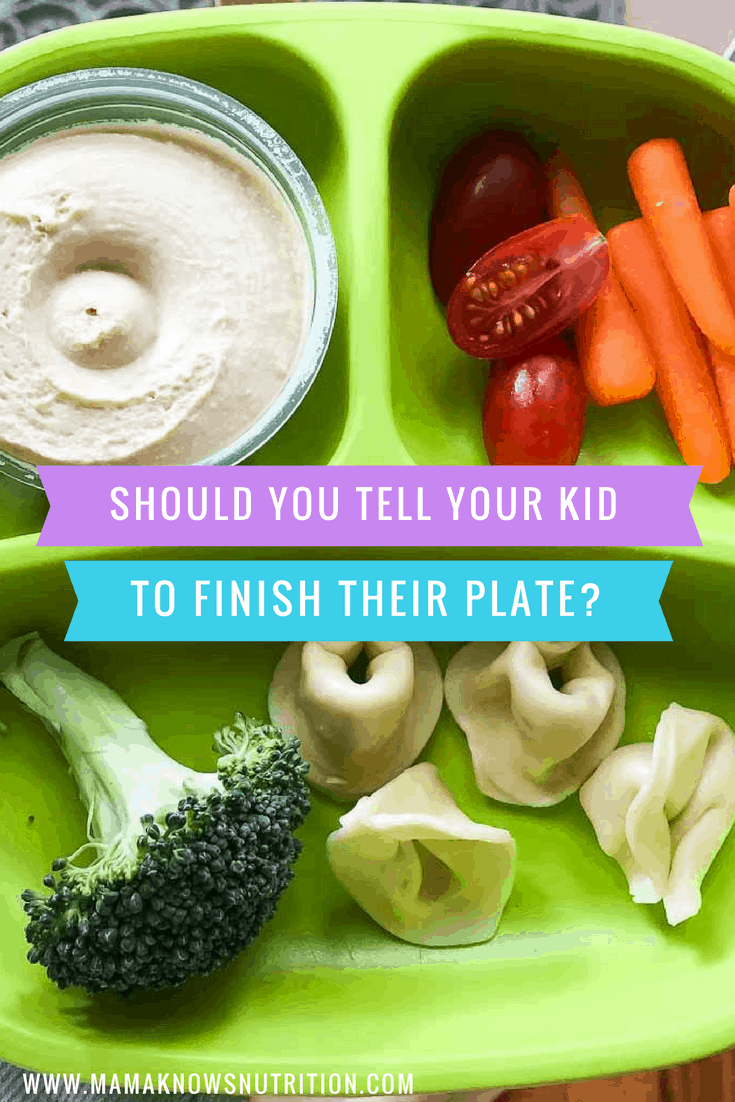Clean Your Plate, or Don’t?
Nov 17, 2017, Updated Jan 07, 2023
This post contains affiliate links. Please see our disclosure policy.
Not to throw my husband under the bus…but I had to get on his case about something the other day. Poor guy, he really wasn’t trying to do anything wrong. My son asked for a cookie during dinner, and Ben told him to eat what’s on his plate first. And of course I couldn’t keep myself from whisper-yelling to him, “we don’t want to force him to eat it if he doesn’t want it!” And now I don’t even remember anymore if we gave him a cookie or not!
But you’re probably wondering why I didn’t want him telling Teddy to finish his plate.

Healthy eating isn’t just about which foods we give our kids to eat. The eating behaviors they develop are just as important.
Is anyone a tried and true member of the clean plate club? If you said yes, I’ll bet you typically finish your whole plate, regardless of whether you’re already full, because you were encouraged to finish your meal when you were a kid. Or maybe you were told you could only have dessert if you finished your meal, or ate all your veggies. These habits can stick with us for life! And they can be very hard to break as an adult.
I know parents have their heart in the right place when they tell kids to finish their meal. Parents want their kids to get all the nutrition they need. And if you have a kid who is picky, underweight, or not all that interested in food, it’s natural to want to tell them to eat more.
So even though it seems counterintuitive, it’s better to stop yourself from telling your kids to finish their meal. Toddlers and little kids are in an important early stage in their relationship with food. They are starting to learn how to listen to their belly’s voice when it says, “I’m still hungry,” or “that’s enough, I’m full.” Many adults struggle with stopping when they are full because they have learned to ignore that voice.
It can be really hard to let go, but it’s important for you to trust that your child’s body knows how much it needs. Think about yourself, for a minute. Do you eat the exact same amount every day? Are there days when you’re more active, so you’re more hungry, and days when you’re not very hungry at all? Kids are the same way. It’s important that they listen to their body at meal times. There is no way for you to know how hungry or full they are. It’s something they have to learn for themselves.
Do you tell your kids to finish their meal? If you do— first and foremost, do NOT feel bad about it. Like I said before, parents do this from a place of love and care for their kids. You just want them to get what they need. But I encourage you to step back and see what happens when you don’t tell them to finish. Try it as an experiment. I think you’ll find that your child still gets what they need!
In my next post, I will cover the dessert topic. Should kids get dessert if they didn’t finish their meal, or even if they didn’t touch their meal? When should you serve dessert? Alongside a meal, or afterwards?













